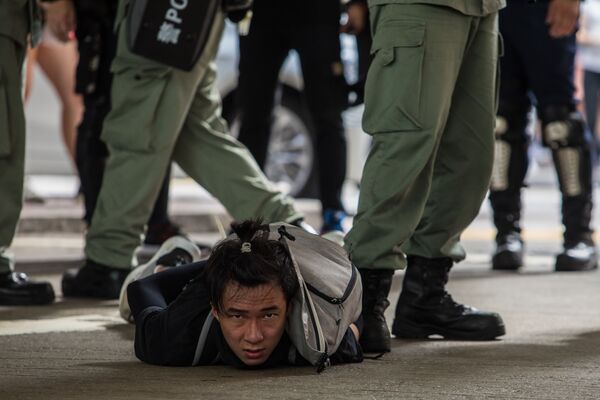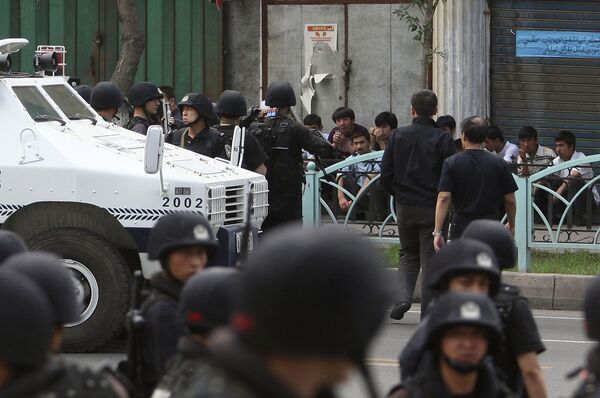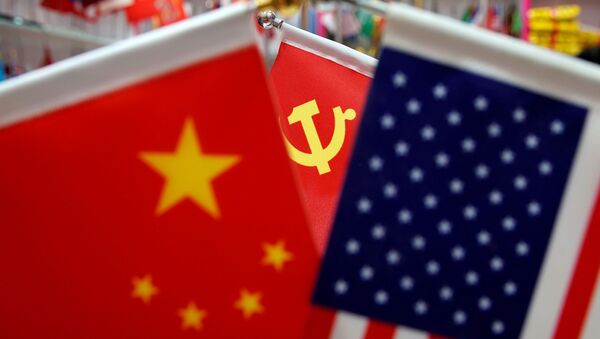The Trump administration has ordered China to close one of its five consulates in the United States in a move that is likely to set off a new diplomatic row.
The US has told China's diplomatic mission in Houston, Texas, to cease all operations by Friday, citing the need to “protect American intellectual property”.
The Justice Department on Tuesday accused China of sponsoring cyber attacks on COVID-19 vaccine research and announced criminal charges against two Chinese nationals suspected of targeting pharmaceutical and solar energy companies as well as manufacturers of medical devices.
Beijing has described the order to close its Houston consulate as “unprecedented” and “outrageous” and threatened retaliation if it was not withdrawn.
It is the most visible – but not the first – diplomatic step initiated by Donald Trump against China as part of a broader struggle for dominance in international politics, economy, and technology.
Here’s how the US has been trying to “punish” China before – through sanctions, visa restrictions, and more.
Travel bans
Last week, The New York Times reported that the Trump administration was weighing a wholesale travel ban on members of China’s Communist Party and their families. The measure could technically apply to as many as 270 million people or to just dozens of Chinese officials, depending on the scale of the ban. Though the proposal hasn’t been finalised yet, China has already labelled it “very pathetic”.
On 15 July, the US also announced a travel ban on employees of the tech giant Huawei and other Chinese companies which the US suspects are helping authoritarian governments encroach on human rights.
The State Department in June also slapped visa bans on current and former Chinese officials accused of undermining Hong Kong’s autonomy, prompting China to announce tit-for-tat measures against US individuals.

On 29 May, Donald Trump restricted entry to the United States by Chinese graduate students and researchers with ties to China’s military, ostensibly in a bid to curtail intellectual property theft. The new rules threaten to deport over 350,000 students.
Restrictions on the media
Also in the spring, the US put several restrictions on journalists from mainland China. Those included 90-day limits on work visas for journalists from mainland China and limits on five Chinese news outlets that forced them to cut 40 percent of their US-based staff.
The US government designates Chinese state-affiliated news organisations as foreign missions, which requires them to submit lists of everyone who works for them in the US and any real estate holdings as if they were foreign embassies or consulates.
Xinjiang sanctions
The United States has also imposed sanctions on multiple Chinese nationals and businesses in relation to China’s western region of Xinjiang. Those included senior officials of the Chinese Communist party and around a dozen Chinese companies that were prohibited this month from buying American technology and other goods over alleged human rights violations.

Secret expulsions
In December 2019, reports surfaced that the US had secretly expelled two diplomats from the Chinese embassy after they drove into a “sensitive” military base in Virginia. American officials believed one of the Chinese to be an intelligence officer operating under diplomatic cover. China denied that they were spying and insisted they had “simply gotten lost”.
And last October, the State Department tightened the rules for Chinese diplomats, requiring them to give five days’ advance notice of visits to state and local officials, as well as to research or educational institutions.


